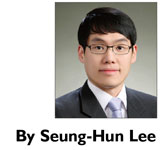 Parallel importing occurs when a third party imports genuine goods to Korea without the express permission of the sole/exclusive importer of the goods. An ‘exclusive importer’ is the foreign and/or domestic trademark holder, an affiliate company (in certain cases), an import agent, or a person given an exclusive license by the foreign trademark holder or a related person. See ‘Announcement of the Types of Unfair Trade Practices in Regards to Parallel Importation.’ ‘Genuine’ goods are goods bearing a mark which has been affixed by a person legally authorized to use such mark overseas. To receive trademark protection in Korea, a foreign company’s exclusive importer must first register the trademark in Korea. That is because under the principles of territoriality, trademark rights granted in one country have no effect beyond the territorial boundary of that country. Registering a trademark in Korea does not prevent importation of genuine goods by a parallel importer. For policy reasons, such as increasing competition and reducing prices, the Korean Supreme Court permits parallel imports of goods as long as the imports meet the following three requirements: First, imported goods must be genuine goods – counterfeit goods are not allowed. If the imported goods are counterfeit, an exclusive importer in Korea can stop the sale of the goods by filing a trademark infringement claim in the court. Second, the original source of the parallel imported goods and goods distributed in Korea by the exclusive importer must be the same. This means that the mark affixed to the parallel imported goods and to goods distributed in Korea by the exclusive importer should indicate the ‘same’ trademark holder or a person or company closely related to the trademark holder, legally or financially. This does not suggest that parallel importation will not be allowed simply because the goods are imported in violation of territorial restrictions agreed to by the exclusive importer and the original manufacturer, because exclusivity agreements do not change the source of the goods. Third, parallel imported goods and goods distributed in Korea by the trademark holder must not have any substantive difference in their quality. A difference in quality refers to the performance and durability characteristics of the goods, which must be the same. Differences in the existence of incidental services, such as customer support, warranty repairs, etc. are permitted. Even when parallel importing of genuine goods is permitted, there may still be limitations on a parallel importer’s use of a trademark in other business activities. The Supreme Court has ruled that a parallel importer’s use of a trademark on a business card or outdoor store signage caused consumer confusion with the trademark licensee in Korea in violation of the Unfair Competition Prevention and Trade Secret Protection Act (Supreme Court Decision, Case No. 99Da42322, Sept. 24, 2002). |
Lee International IP & Law Group
Poongsan Bldg. 23,
Chungjeongro
Seodaemun-gu,
Seoul 120-013, Korea
Tel: 82 2 2279 3631
Fax: 82 2 2273 4605
Email: shlee42@leeinternational.com
Website: www.leeinternational.com

